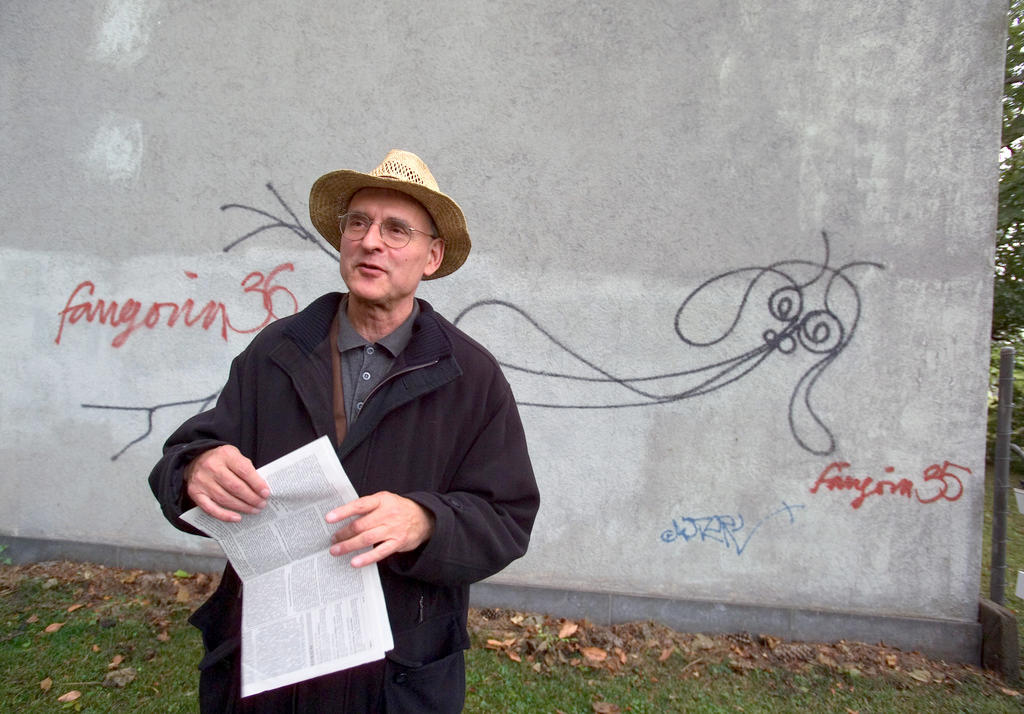
The ‘sprayer of Zurich’ – artist or vandal?

Veteran Swiss graffiti artist Harald Naegeli, known as the “sprayer of Zurich”, appeared before cantonal court on Wednesday to debate the issue.
The answer is obvious for local and cantonal authorities in Zurich. A district court accused 77-year-old Naegeli of causing almost CHF10,000 ($10,250) of damage to city property with 25 pieces of graffiti sprayed in 2012 and 2013.
In his defence, Naegeli delivered what the Swiss News Agency described as a “theatrical” performance. Facing the judges, he cried out “I accuse! I accuse you of eliminating, destroying, making invisible, unusable and qualifying as criminal, works of art – no matter who they are done by – instead of protecting and conserving them as culture would want.”
In conclusion, the judge ordered that Naegeli and the local authorities get together and settle out of court. Should the local authorities agree to drop charges, no judgement will be made.
This is not the first time Naegeli has had a brush with the law. As an early proponent of street art, he acquired the “sprayer of Zurich” moniker in the late 1970s when he began anonymously painting wire-frame figures on buildings in the city.
Some 1,000 works later, in 1979, he was arrested on charges of defacing public property, which he countered by describing himself as a political activist. He initially fled to Germany, where he was sentenced to prison in absentia, but in 1984 he returned and handed himself in to spend nine months in jail.

In compliance with the JTI standards
More: SWI swissinfo.ch certified by the Journalism Trust Initiative

























You can find an overview of ongoing debates with our journalists here . Please join us!
If you want to start a conversation about a topic raised in this article or want to report factual errors, email us at english@swissinfo.ch.